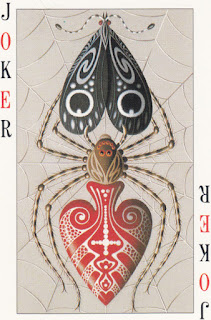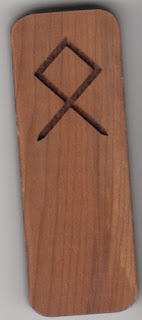Rather than assuming you will know how people will act, take a deep breath and open yourself to the possibility that today is a new day. —Yael Shy
The Fool asks us to move from distrust to charitable assumption, from paranoia to possibility. For anyone who's taken a beating from life, this may be hard advice to swallow. Survival mode is hard to replace with optimism. But perhaps we can try to be curious and open rather than absolutely sure Armageddon is on the horizon. The Joker card is paired with a verse by Mary Howitt about a spider attempting to trick a fly by inviting it into its parlor. The Joker warns that while we can be open-minded, we don't have to shelve our discernment. We must learn to listen and observe through an unfiltered lens. In the words of Kenneth Copeland, "Sometimes you can tell what something is by what is isn't."

















































